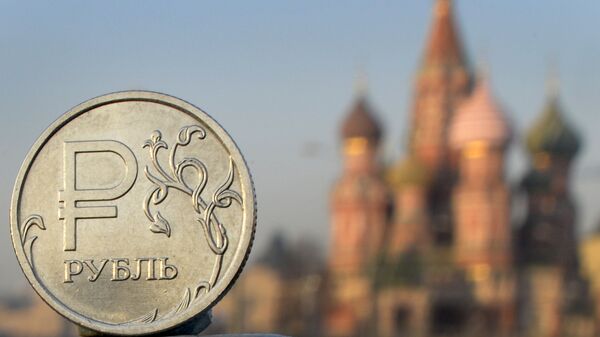Russia enters 2020 with “one of most lucrative carry-trade currencies” in the world, Bloomberg’s Srinivasan Sivabalan and Aine Quinn report.
In an article titled “Five years after meltdown, ruble reborn as trade war refuge”, the authors specifically cited an array of the Russian government’s moves to add to the strengthening of the ruble.
These include a “decision to abandon currency interventions, a cautious interest-rate policy and tighter budget rules”.
Referring to a recent Bloomberg survey of 57 global investors, strategists and traders, the authors predicted that the Russian currency “is set to top the pack again in 2020, offering a safe haven amid concerns over the trade war between the U.S. and China”.
They also quoted HSBC Holdings Plc analysts as saying that the ruble may gain “as much as 7 percent from current levels”, and that the Russian currency is due to become a “beacon of light” among the emerging countries of Europe, the Middle East and Africa.
Over the past five years, a “high interest-rate differential relative to US borrowing costs and ruble strength have combined to yield the best carry-trade returns in emerging markets; in fact, investors profited from rouble assets more than twice as much as the second-best performer, the Egyptian pound,” the authors underscored.
In this vein, they recalled about “a gut-wrenching test” in 2014 when Russian Central Bank Governor Elvira Nabiullina decided to “let the ruble trade freely after an oil-price collapse and international sanctions had put the currency into a nosedive that even a 650 basis-point rate hike couldn’t immediately halt”.
Russian Finance Minister Upbeat on Ruble’s Strength
Back in December 2018, Russia’s Finance Minister Anton Siluanov predicted that the upcoming year would see the further stabilisation of the ruble, saying that the Russian currency exchange rate is mainly affected by sanctions and fluctuations in energy prices.
“We have created the basis to minimise these fluctuations. Of course, in 2018, the ruble exchange rate was influenced by the exit of foreign investors from our securities [market]. Next year, outflows in such volumes are not going to happen. There is no basis to talk about the instability of our national currency," Siluanov told the Rossiya 24 broadcaster.
While the rouble has been repeatedly hit over recent years by the impact of Western sanctions as well as falling oil prices, the Russian Central Bank responded by adopting a tough monetary policy and high-interest rates with an emphasis on stemming inflation.


